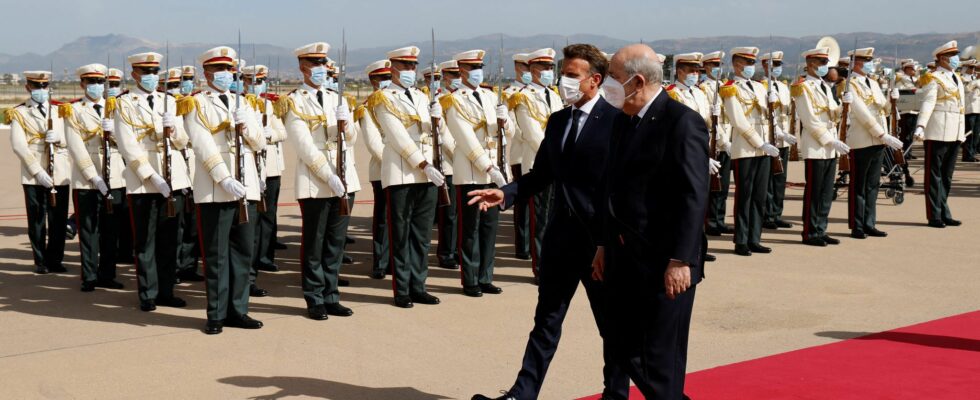In 2013, who could have imagined Daesh, the invasion of Ukraine, the assault on the Capitol? To deal with even the most surprising threats, the Ministry of the Armed Forces has asked the Chiefs of Staff, within the framework of the next military programming law, to detail the dangers hanging over our country. Clearly, to propose credible scenarios justifying the use of force. Independently, L’Express wanted to develop its own “black scenarios” in order to question the preparation, the possible flaws in the French defense, and thus fuel the necessary public debate on these questions at 60 billion euros per year. .
About forty experts – researchers, generals, diplomats, former executives of the DGSE – were asked to deliver their analyzes of the main threats that await France between now and 2030. The framework of these seven scenarios was developed from a real geopolitical tension, to which we have integrated, on the suggestions of our great witnesses, Murphy’s law, himself an American soldier: “Anything that is likely to go wrong will go wrong.” Russia, China, cyber, jihadism… The majority of these hypotheses overlap with those on which the armies are working, with the notable exception of the France-Algeria conflict. These scenarios do not constitute forecasts. The military, considering the worst on principle, are the first to know: it is never certain. Especially if you prepare for it.
Scenario 1: 2026, Russian tanks enter Estonia and Lithuania: “The area is a weak point for NATO”
Scenario 2: 2028: Madagascar takes over the Scattered Islands from France, China pulls the strings
Scenario 3: 2026: four Chinese hypersonic missiles sink the aircraft carrier Charles-de-Gaulle
Scenario 4: 2024, Mali falls into the hands of jihadists: “A new Daesh could emerge”
Scenario 5: 2027: a major cyberattack plunges Paris into darkness for seven hours
Scenario 6: 2028: Erdogan’s Turkey attacks the Imia Islands, France flies to the aid of Greece
Scenario 7: Paris and Algiers get angry
November 2029. Diplomatic relations between France and Algeria have soured. Algiers’ reluctance to issue consular passes for its deported nationals, as well as its supposed softness in dismantling networks of migrant smugglers, annoy Paris. For its part, Algeria still reproaches France for not assuming its colonial past. In September 2029, the Algerian power was embittered by the visit of the French Foreign Minister to Dakhla, in Western Sahara. Remarks implying that the territory is legitimately Moroccan, which Algeria has always disputed, have been made.
If a new generation now dominates the economic life of the country, political power is in the hands of the army, which weighs 12% of the national GDP. A world record. When a popular protest movement breaks out, the highest ranking officers accuse Paris of exploiting it. “In Algeria, the relationship with France is used for internal political purposes. Part of the press, which is not free, likes to see the hand of the General Directorate of External Security [NDLR : DGSE] in everything that happens,” said Xavier Driencourt, who was France’s ambassador to Algiers for seven years.
On November 16, several attacks were carried out on Algerian territory. The Support Group for Islam and Muslims (GSIM), a subsidiary of Al-Qaeda, claims responsibility for the attack. Faced with this destabilization which is going crescendo, some generals would like to ask for the assistance of France, to secure the border with Mali. The presidential staff prefers to turn to Russia. Despite the war in Ukraine, the two countries have strengthened their military partnership since 2022, when several joint armed exercises were held. The cooperation was then confirmed year after year. Seen from Algiers, Moscow is seen as a strategic ally and the first supplier of arms in the event of a conflict with Morocco.
Iskander missiles in the Mediterranean
On November 20, the Algerian president accuses France of “maliciousness” and claims to be ready to “defend the fatherland”. The next day, Iskander missiles supplied by Moscow are fired into the Mediterranean Sea, as part of an impromptu exercise. “With its strong ties with Russia and its more than ambiguous relationship with France, Algeria constitutes a theoretical threat. It has Russian Kilo-type submarines with conventional cruise missiles. Its equipment is of very good quality. “, points out Admiral Pascal Ausseur.
On the advice of his particular chief of staff, the French president declares that “France will respond in a proportionate manner to any aggression”. He refuses to go any further. “For obvious historical and sociological reasons, France will never enter into a military conflict with Algeria”, specifies Xavier Driencourt. But the military means in the Mediterranean are increased tenfold. “In the event of tensions, we should mobilize our means and make them converge in the Mediterranean”, confirms Guillaume Lasconjarias, associate professor at Paris Sorbonne and former researcher at the NATO defense college.
